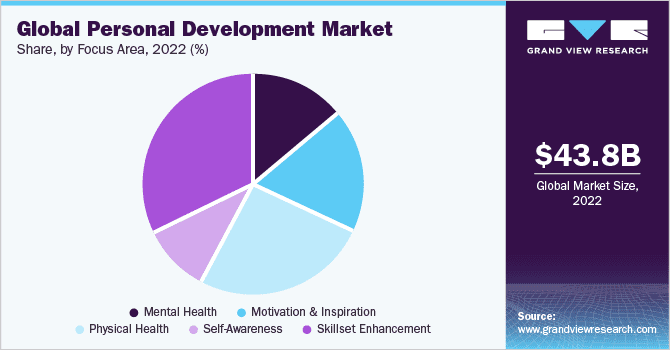The Censorship, Commodification, and The Fall of Well-Being
Introduction
Let’s set the stage for well-being.
Imagine walking up a spiral staircase.
Each step takes you higher, offering a new perspective on the world below.
But as you climb, the path circles back on itself, revealing familiar sights from new angles.
This is capitalism, a system in constant motion, where each solution to a problem lays the groundwork for the next challenge.
Capitalism is not a static entity; it’s a living, breathing cycle of innovation and adaptation. And I genuinely like it.
At its core, capitalism thrives on the ability to identify and resolve our issues, whether they be related to scarcity, efficiency, or social needs.
However, with each solution comes a new set of challenges, pushing us as a society to find fresh answers.
Take globalization, for example.
The expansion of global trade and communication networks opened up unprecedented opportunities for all of us.
Businesses could reach new markets, people could access our services and goods from across the world, and cultures could exchange ideas more freely.
Yet, globalization also brought challenges: economic disparities, environmental concerns, and the complexities of cross-border regulation.
Similarly, technology has driven incredible progress, from the rise of the internet to the proliferation of smartphones.
These advancements have transformed how we work, communicate, and live.
But they also introduce new dilemmas, such as data privacy issues, the digital divide, and the disruption of traditional industries.
In the midst of all of this advancements we are having, some of us out there have taken advantage of 3 main concepts and promised us eternal joy.
And dare I say, you’ll agree with me in the end.
Let’s tackle it!
The Holy Trinity of Joy: Self-Esteem, Positivity and Well-being
It goes without saying that the ideas of self-esteem, positivity, and wellness have surged into the mainstream over the past years.
They reshaped how we thought about mental health and personal development to say the least.
These concepts, once relegated to the fringes of psychological theory, are now central to how many of us approach our daily lives.
But as they’ve gained popularity, it’s crucial to ask:
Are these ideas as effective and impactful as they seem?
Yes, self-esteem, positivity, and wellness have undeniably offered many of us new tools for navigating life’s challenges.
But their effectiveness is not without criticism.
High self-esteem is often praised as the foundation of success and happiness.
Yet it can sometimes foster a fragile sense of self-worth within us that’s dependent on external validation and may lead to self-sabotage.
Positivity is promoted as a cure-all for our life’s difficulties, but relentless optimism can lead to the denial of real, pressing issues.
Wellness, with its emphasis on holistic health, has helped us achieve balance, but it has also spurred a billion-dollar industry that often prioritizes profit over genuine well-being.
The effectiveness of these concepts lies not in blind adherence but in a nuanced understanding of their limitations.
They can empower and uplift, but they can also mislead and oversimplify our complexities and human experience.
Now, a good question worth asking here is:
How have these concepts become so influential?
To understand that, it’s essential to briefly trace their origins and the myths they’ve created.

The Origins of Self-Esteem
The modern obsession with self-esteem can be traced back to the philosophy of Ayn Rand and the psychology of Nathaniel Branden.
Rand’s emphasis on individualism and self-worth laid the groundwork for Branden’s assertion that self-esteem is the key to a fulfilling life.
However, this focus on self-esteem often ignores the importance of resilience, humility, and interconnectedness.
It creates a myth that self-esteem alone can solve life’s challenges, sidelining other crucial factors like community support and the acceptance of failure.
The Origins of Wellness: Halbert Dunn’s Vision
The wellness movement, with its roots in Halbert Dunn’s concept of “high-level wellness,” initially aimed to make a shift.
That shift focused on transitioning from disease treatment to overall well-being.
Dunn’s vision was revolutionary, encouraging many of us to take proactive control of our health.
However, as wellness became mainstream, it evolved into an industry more focused on emptying our pockets on products or services than genuine health.
The original idea of wellness for us is to be empowered through knowledge and lifestyle choices.
With Dunn’s vision, the motto became: wellness can be bought rather than lived.
Positivity: Martin Seligman’s Epiphany
Martin Seligman, often credited with founding the positive psychology movement, introduced this notion.
He stated the idea that cultivating positivity could lead to a more fulfilling life.
At least Seligman’s work was grounded in scientific research and aimed to balance the focus between mental illness and mental well-being.
Yet, as positivity became a buzzword in our life, it generated the myth that a positive mindset is a remedy for all of life’s problems.
As far as I can tell, this oversimplification is a terrible thing for one main reason.
It can lead to the suppression of negative emotions, which are a natural and necessary part of our life.
And as a result, these concepts have created unrealistic expectations and, in some cases, fostered a disconnect from the deeper realities of our life.
The damage doesn’t and didn’t stop here.
These concepts have fueled an explosion of self-help products and services.
From books and seminars to apps and wellness retreats all promising personal transformation and a better life.
However, this explosion comes at a high cost – both literally and figuratively.
Many self-help products and services are expensive, creating a barrier for many of us who need them most.
Despite the high price tags, the effectiveness of most of these offerings is often questionable.
They tend to offer quick fixes rather than addressing the deeper, more complex issues that we face.
The result is a cycle designed to keep you and me (consumers) invest in self-help without seeing substantial change that drives us to invest more for better solutions.
And the market demand and future projections are no joke.
The Pseudo-Science of Quantifying The Unquantifiable
In our quest to understand and improve our lives, we’ve tried to measure self-esteem, wellness, and positivity.
And as we know now, this is a huge mistake.
These attempts stem from a desire to make the intangible tangible.
In other words, to quantify what it means to feel good about ourselves, to be healthy, and to stay positive.
But is it possible to accurately measure these deeply personal and complex aspects of our experience?
The Fallacy in Happiness Studies
Researchers often identify correlations – such as higher self-esteem lead us to better life outcomes – as a good solution.
But especially in social sciences, correlation doesn’t equate causation.
The danger lies in assuming that boosting our self-esteem, wellness, or encouraging positivity will automatically lead us to happiness.
This oversimplified cause-and-effect thinking ignores the myriad factors that contribute to well-being, such as genetics, life circumstances, and social support.
It risks creating a false narrative that if you just do X, you’ll inevitably achieve Y, leading you to focus on the wrong solutions.
The grave mistake here as you might have noticed is treating complex human experiences as if they can be isolated and quantified.
Self-esteem, joy, health, and positivity to name a few are not standalone metrics but interwoven in our life.
This reductionist approach fails to capture the full picture.
For example, you might score high on a wellness scale while still feeling deeply unfulfilled due to unaddressed emotional issues.
Or you might be brimming with positivity but neglecting the importance of processing negative emotions, leading to long-term psychological harm.
True well-being is about understanding this as a whole picture, not fragmented pieces in my opinion.
Nietzsche Has Something to Say
Here is one provocative philosopher who offered profound insights into the nature of self-improvement and our striving.
One of his key observations reveals a fundamental flaw in the conscious pursuit of ideals like self-esteem, wellness, and positivity.
Nietzsche recognized the paradox of seeking versus being.
This idea is a a concept that the modern self-help and personal development industry hates the most.
Here’s why.
Nietzsche argued that the more we consciously seek something, the more elusive and unattainable it becomes.
This paradox is particularly evident in the pursuit of self-esteem, wellness, and positivity.
When we pursue these ideals, we often end up in a cycle of always trying and never really reaching the state we want to be in.
The act of seeking itself creates a distance between who we are and who we want to be.
I.e. turning self-improvement into an endless chase.
In trying to “achieve” self-esteem, we might become overly concerned with how we’re perceived.
This can lead us to insecurity rather than genuine confidence.
Also, this pursuit can become an obsession, where the goal of health turns into anxiety about health that we so hardly want.
To put it simply, chasing these concepts is self-defeating because now we turn them from meaningful ideals to objective measures.
For me, true self-esteem, for example, arises naturally from living in alignment with our values, not from the calculated effort to boost one’s self-image.
Wellness is a state of balance that emerges from a holistic way of living, not from obsessively tracking every aspect of our health.
Positivity is most powerful when it’s a genuine expression of our outlook, not when it’s forced or artificially maintained.
The more we try to control and manipulate these aspects of our lives, the more we undermine their authentic presence.
Venting and Ranting
In the pursuit of psychological well-being, I see that society is tiptoeing into dangerous territory.
What was once a noble aim – promoting mental health and happiness – has turned into a mechanism for subtle yet powerful forms of censorship.
We’ve reached a point where the very tools meant to liberate us might be leading us into a new kind of bondage.
One that silences dissent, fosters societal bankruptcy and raises urgent questions about the limits of commodifying happiness.
Let me explain what I mean.
In today’s world, the narrative of psychological well-being has become a double-edged sword.
On one hand, it has brought much-needed attention to our mental health issues.
But on the other, it has also introduced us to a new form of censorship.
This censorship doesn’t come from governments or authoritarian regimes; it comes from within society itself.
In the name of protecting people from harm, we’re seeing the rise of “safe spaces”.
While well-intentioned, this often suppresses uncomfortable truths and stifle open debate between us.
For instance, if I have a controversial opinion that challenges the known narrative of positivity and wellness, I might be labeled as “toxic” or “harmful”.
This kind of censorship doesn’t just limit freedom of speech—it limits freedom of thought.
The space for critical discussion shrinks, and the ability to confront and deal with the complexities of our life diminishes.
What happens when we can no longer question the very concepts that are supposed to guide us toward well-being?
As this trend continues, the potential for societal bankruptcy gets large.
By reducing psychological well-being to a set of marketable products and services, we risk emptying these concepts of their deeper meaning.
When happiness becomes something you can buy, and wellness is packaged as a subscription service, we’re not just commodifying emotions nut also draining our society from what it means to live a good life.
Imagine a future where the pursuit of happiness is so commercialized that those who can’t afford the latest wellness trend or self-esteem booster are left behind.
The gap between us who can “buy” happiness and who can’t could spark public outrage.
All might lead us to a society divided not just by wealth, but by emotional well-being.
This could create a new class of “happiness haves” and “have-nots,” exacerbating social tensions and fueling resentment.
In the end, I’ll leave you with this.
As we forge ahead, critical questions arise about the limits of commodifying happiness.
- How much of our emotional lives are we willing to package and sell before we lose something essential?
- At what point does the relentless pursuit of happiness turn into a shallow, self-defeating endeavor?
We must ask ourselves whether the current trajectory of turning well-being into a product is sustainable, or even desirable.
- Should happiness be treated as a commodity, or is it something that can only be truly understood and experienced through authentic, uncommodified human connection?
- Are we building a future where happiness is a luxury, accessible only to those of us who can pay the price?
- or can we envision a society where well-being is a shared, communal pursuit, grounded in real, meaningful engagement between us?
I think as we move forward, we must be vigilant in questioning the narratives that guide us.
We should strive to ensure that in our quest for happiness, we don’t sacrifice the very freedoms and values that make life worth living.
The future of well-being depends not on how much we can sell it, but on how deeply we can understand it.
Thanks for reading!
What do you think about this topic? Do you think self-help has veered off the rightful path?
Feel free to drop your insights below in the comments :).





